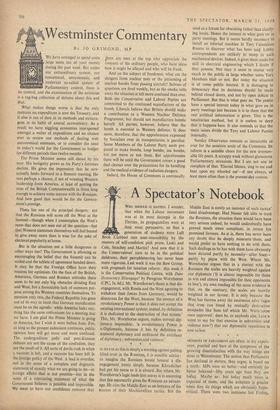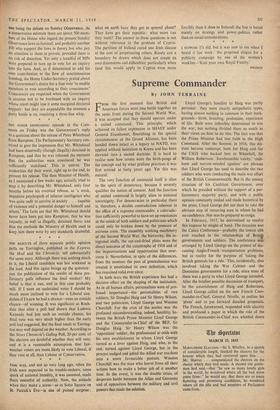MEMBERS OF PARLIAMENT are often, in my experi- ence, puzzled
and hurt at the symptoms of the growing dissatisfaction with the way things are done at Westminster. The notion that Parliament has declined in stature, they argue, is based on a myth : MPs were no better—and certainly no better' behaved—fifty years ago than they are today. Maybe so: but today much more is , expected of them; and the irritation is greater when they do things which are obviously hypo- critical. There were two instances last Friday, one being the debate on Sunday Observance. At a conservative estimate there are about 500 mem- bers of the House who regard the present Sunday Observance laws as farcical; and probably another 100 who support the laws in theory but who pay no attention to them in private, provided there is no risk of detection. Yet only a handful of MPs were prepared to turn up to vote for an inquiry into the laws. And, as if determined to add his own contribution to the flow of sanctimonious humbug, the Home Under-Secretary prated about the Government's desire for a free vote `to enable members to vote according to their consciences.' Consciences are respected when the Government is anxious not to be burdened with an inquiry whose result might lose it some marginal electoral support: but they are expendable the moment a party battle is on, requiring a three-line whip.
• * *



































 Previous page
Previous page